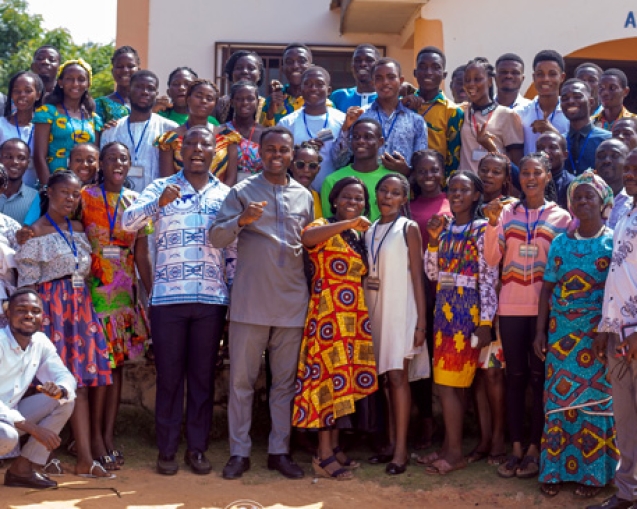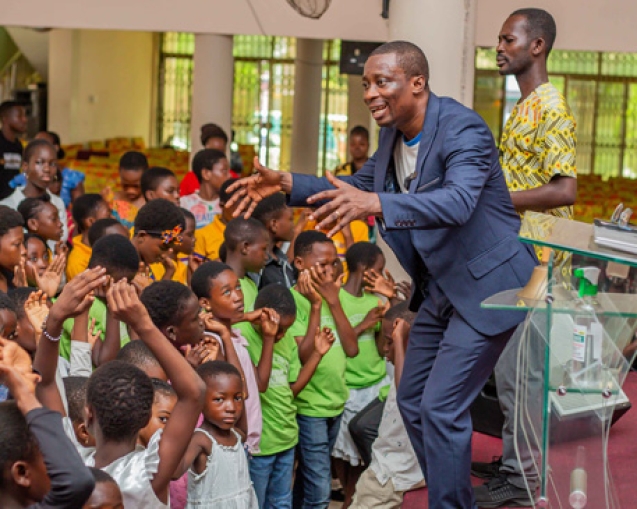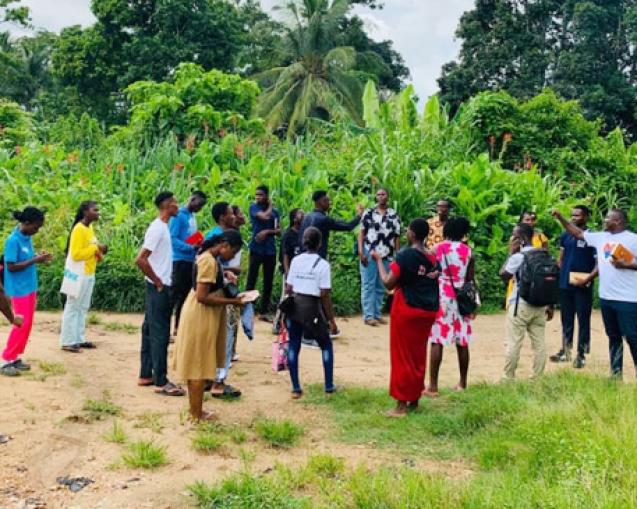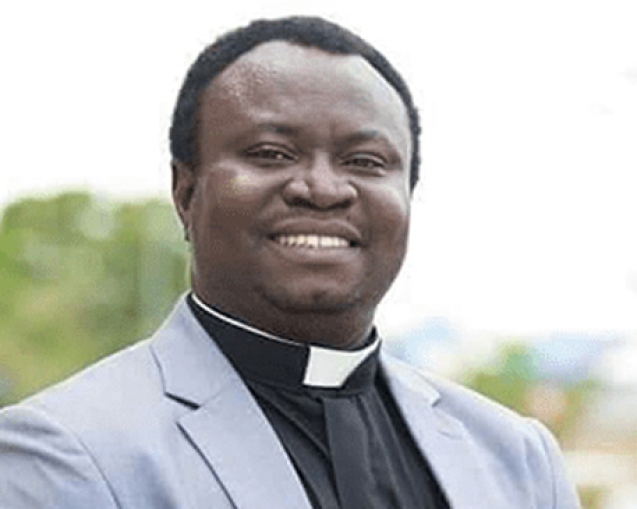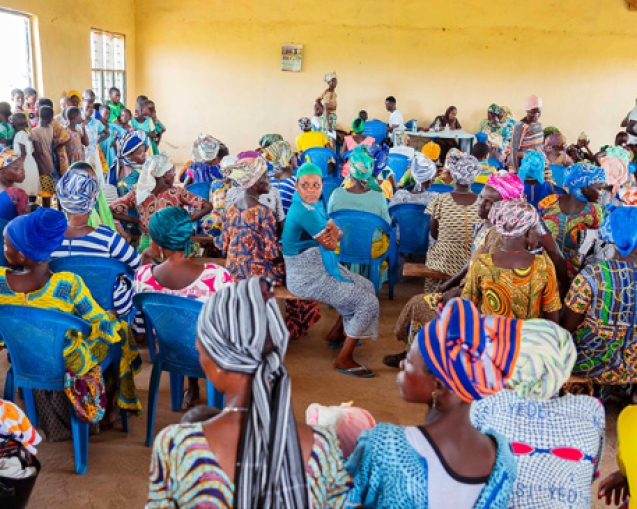Introduction
The debate on illegal gold mining (popularly called galamsey in Ghana) is intensifying in recent days. Historically, the term galamsey or illegal Artisanal Small-Scale Mining (ASM) evolved from the corruption of the phrase ‘gather and sell’, which was the description the first foreign industrial large-scale miners gave to the traditional method of gold mining in the Gold Coast era. It became part of our lexicon in the colonial era.
Today, galamsey is a household term for infamous reasons. The wanton destruction of the nation’s forests, water bodies, and arable lands by galamsey operators is in free fall mode and that has become a major concern of every patriotic and godly citizen of the country. Although illegal mining has been in Ghana for a long time, in the last two decades, many institutions including the church, traditional rulers, and government have identified galamsey as a major threat to the ecosystem in the country.
By ecosystem, I mean the place where the community of organisms such as aquatic and terrestrial life is conserved. The ecosystem also hosts matter and energy which are essential for human existence. Yet the diverse life in the ecosystem (biodiversity) is put under extreme stress, even danger, when humans whose prime divine mandate is to protect the ecosystem find themselves incapacitated and helpless as a result of their own careless and destructive acts as is being experienced with the fight against illegal mining in Ghana.
Looking at the complexity of the problem brought on by the galamsey menace, weighted against the backdrop of the recalcitrance of culprits, probably strengthened by the assumed invincibility of their connections, the likely question to pose is whether to continue with the campaign to protect the ecosystem or to back off altogether as vulnerable and helpless spectators? This question should be answered by every Ghanaian as we engage in the debate on the activities of galamsey.
From reports and government pronouncements, stringent measures have been put in place and practical efforts are seen to have been committed to the fight against illegal mining. What is yet to materialize, though, are tangible results that should manifest in the restoration of the nation’s water bodies and our once cherished arable lands which are now lying heavily ravaged to their former glory. While some think the setback in the fight against galamsey is a political issue others attribute it to economic hardship and should, therefore, be permitted to operate freely, regardless of its ripple effects on the ecosystem. What then is the way forward in the face of these perspectives?
As the debate intensifies, one could easily see the frustration in the face of stakeholders and agencies involved in the fight against illegal mining. The situation, however, is dicey and the debate is inconclusive as there seems to be no clear-cut solution. However, a useful question is, why is the galamsey debate raging without a positive conclusion? We can only answer this question with a deep appreciation of our obligation toward the protection of the ecosystem.
Two Fundamental Facts about the Ecosystem
Ostensibly, many people have not come to terms with two major facts about the ecosystem: Firstly, the ecosystem is God’s creation and must be jealously protected and cared for by humanity as stewards of God. Secondly, the ecosystem is our place of abode, and we also depend on it for our survival and comfort. We become the direct beneficiaries if it is laid in its original state of equilibrium, in which its nature remains desirably intact.
Thus while this article attempts to explore a few scientific reasons why the ecosystem must be protected for our good, the major focus is to draw our attention to the fact that the ecosystem, biodiversity, or the biosphere, as we may choose to call it, is God’s creation and every godly person has a civic and divine responsibility to protect it. If this becomes very clear to us as a nation with over ninety percent claiming to be religious in one way or the other, then we can succeed in the fight against galamsey.
When people realise that the fight against galamsey is not just a political issue and environmental problem but also a divine mandate for every godly person to fulfil, we shall have a wider patronage of zealous Ghanaians in the fight. Once they clearly understand that they are stewards of God in taking care of the ecosystem, they will not wait for any person to persuade them to do the needful. In this article, I have chosen to use ecosystem, biosphere, and biodiversity more than the term “environment” for a good reason in the light of the reflections in our discussion.
The Lucrativeness of the Gold Business
It is not far-fetched to say that dealing in gold is a lucrative business in the global market and the enthusiasm with which people invest in the gold business has always been part of human tradition. Gold is so expensive that even an ounce of it as of the beginning of October 2022 was over GHC18,000. But unlike other mineral resources such as oil and gas which requires very sophisticated systems and technology for extracting, gold mining is relatively easy and even “unprofessional” people can mine and refine it using improvised devices and methods.
The difference in the process is that while accredited mining companies conduct their activities by strictly following the laid down standard operating procedures in mining, others may choose to operate without recourse to proper procedures and laws on mining. Nonetheless, due to the lucrativeness of the gold business and the use of unscientific means for mining, regulation of illegal mining has become an adverse challenge in Ghana although most people are well informed of the consequences. Having considered the rapid rate at which our ecosystem is being destroyed by illegal gold mining activities, is society losing sight of the fact that we are stewards of God’s creation? We may attempt to answer this question as we progress with the discussion.
God’s Creation versus the Perception about the Environment
The perception humans have about the ecosystem is consequential to how it is treated. We must know that the ecosystem is God’s creation and not just an environment to be exploited. Some Christian writers argue that there is a distinction between the notion that we live in no more than a physical environment and the fact that everything in this world is the creation of God. The Bible says, “The earth is the Lord’s and the fullness thereof, the world and those who dwell therein” (Ps. 24:1, ESV). For Christians, what is known to be an environment falls within the context of God’s creation and we shall give account to Him on how we treat it. Sadly, the exploitation of God’s creation and injustice to the ecosystem becomes prevalent as long as people consider it only as a physical environment around them and not God’s creation.
Most Ghanaians claim to be religious and yet the vicious destruction of our ecosystem as a result of illegal gold mining tends to suggest that many of them have chosen to ignore their call as God’s stewards because of the “lucrativeness” in the exploitation of God’s creation. They ignore the fact that we are the custodians and stewards of everything God has created, and it is incumbent upon us to safeguard it against destruction.
Care of Creation as Social and Divine Responsibility
The care of God’s creation is both our social and divine responsibility that must not be underrated. Just as caring for the poor and the vulnerable is a vital responsibility in society, so also must we care for our vulnerable ecosystem as God’s creation. It is incumbent upon us to commit ourselves and resources to care for the ecosystem and the integrity of God’s creation. Our stewardship to protect the dignity of the ecosystem must not be an exclusive responsibility of some specific stakeholders, agencies, or individuals in society. The fight against galamsey must have a bi-partisan approach where we all join hands to find a lasting solution to the problem.
If we understand that the physical environment is God’s creation, then it is not intended for exploitation and society is the right agency to preserve it for Him. We live where the ecosystem is being destroyed under our very eyes by illegal mining activities, why are we helpless in dealing with the situation? Have we forgotten that care for God’s creation is still a “divine mandate” that must be a fundamental responsibility of all godly people? Our religiosity is deficient if we exempt creation care and tacitly supervise the destruction of the ecosystem. Even though the fight against environmental degradation appears to be insurmountable, no excuse is enough in the sight of God as long as we know that the problem is caused by human beings.
The earth is the property of God and humans who are created in the image and likeness of God must be passionate about protecting the ecosystem to His glory. The diverse lives in the ecosystem, also known as biodiversity, portray the glory of God and His provision for the comfort of humanity in this world. From the biblical point of view, biodiversity (as well as the waters and the mountains) are not idols to be worshipped, neither are they merely natural resources to be exploited but creation to be cared for as creations of God (Gen. 2:15; Ps. 24:1).
Creation is God’s handiworks that declare His glory as stated by the Psalmist: “The heavens declare the glory of God; the skies proclaim the work of his hands” (Ps. 19:1). This is how Paul puts it: “For we are God’s handiwork, created in Christ Jesus to do good works, which God prepared in advance for us to do” (Eph. 2:10, NIV). Creation belongs to God (Deut. 10:14) and He treasures His creation (Gen. 1:31), including humankind. If we understand this, we would not take delight in destroying the environment in any way and for any reason.
The Significance of the Biosphere and Biodiversity
Scientifically, the biosphere or the ecosystem is the whole area that covers the planet earth, including the atmosphere, water bodies, and land that supply life to living organisms. It can be described as a large community of organisms. A related word is the term biodiversity. It involves the variety of life on earth such as plant species, animal species, and micro-organisms with their diverse characteristics.
In God’s wisdom, both the biospheric context of our world and the biodiversity in our environment give us our sense of living and comfort. Humans are both inhabitants of the biosphere and part of the biodiversity. As our place of abode, any negative effect on biodiversity has direct repercussions on the existence of humanity, because it is the habitat of all kinds of organisms as well as “non-living environmental factors” that naturally interact with us to produce energy and nutrients for our survival. The adverse health problems caused by environmental degradation cannot be overemphasized and it is so pronounced that every person is in one way or the other a potential victim. Many of us are quite aware of this and yet we tacitly watch the damage being caused to our environment by human activities.
The Nature of the Ecosystem
Within the ecosystem as a community of organisms, there are living organisms (the biotic) and non-living organisms (the abiotic) which, as components in the biosphere, interact with or are interdependent on one another for survival or for a specific function. Human beings are part of the biotic component of the biosphere. They are scientifically secondary as well as tertiary consumers which imply that they cannot survive without the existence of other living organisms which tend to become their sources of feeding and survival.
Scientifically, we are heterotrophs; that is, living organisms that cannot produce their own food but depend on other organisms to survive. The layman’s understanding is that we feed on some organisms and survive by depending on them. If they are exterminated, our very existence will be jeopardized. It is good to learn that we are consumers that absolutely depend on the ecosystem and some aspects of the food chain. Indiscriminate destruction of the ecosystem means we are making our very existence uncomfortable. Samuel and Sugden’s (1999:349) statement is crucial here:
Although creatures receive life ultimately from God, human beings are intertwined with all other creatures, and in this sense dependent upon them for life. Yet humans are also called to a special task of caring for creation in a shepherdly manner, since they reflect God’s image in a unique way.
The import of Samuel and Sugden’s statement is that scientifically, human beings are crucial species of the kingdom of life in the community of organisms in the biosphere. We are to study the organisms (both biotic and abiotic) in the ecosystem, understand where we belong, the extent of our stewardship towards their survival and our survival as well, and reflect upon God’s infinite knowledge in providing life-saving organisms for us to depend on them for our survival.
Public Education is Required
Conspicuously, the genuine commitment to protecting the ecosystem may largely depend on our understanding of the fact that we depend on the ecosystem for our survival. Is it not amazing that by God’s provision of biodiversity, we get water, food, medicinal resources and pharmaceutical drugs, and wood products? We need not belabour the importance of biodiversity to our survival as humans because their usefulness and importance are obvious to every person but, unfortunately, they are all suffering from the recklessness of human activities.
What must be clear here is that our friends, family members, co-workers, and loved ones are direct beneficiaries of the food chains and food webs of the ecosystem as well as the abiotic factors of the biosphere. What happens to humanity if the ecosystem is destroyed completely through human activities? What would be the future of our children if the entire biodiversity in the light of water bodies, beautiful mountains, animals, and plant lives are destroyed indiscriminately? The bottom line, however, is that when this education is made known to people, the fight against galamsey and care for the environment will be a priority for every family without playing politics with it.
The Love-of-Money Syndrome
The rampant evil in today’s society is attributed to the “love-of-money syndrome” that the Bible talks about. This explains why God’s creation is suffering from sin and reckless activities just for personal gain of humanity. Human activities against the ecosystem are so reckless that no life is spared by their onslaught, even including human life. Humanity has decided to do anything for money and fame. The biblical assertion that “For the love of money is a root of all kinds of evil…” (1 Tim. 6:10, NIV) has become the real issue being battled in our generation. Humans exploit the biospheric resources for a living, forgetting that we are also part of consumers of the food web and any damage to the ecosystem has direct repercussions on our very existence.
Therefore, the issue of climate change and pollution of the environment, which are already affecting humanity, including the church, must come as a major concern for every person. God cherishes His creation (Gen. 1:31) and enjoins us to be good stewards of it (Gen. 1:28; 2:15; Ps. 24:1; Jer. 2:7; 1 Pet. 4:10). Until we return to the scriptures for the right application of the values and principles of God’s Kingdom regarding our stewardship of His creation, the quest for rapid riches, by all means, will continue to be an albatross around the neck of our contemporary society. If the eagerness for money and wealth acquisition is the fundamental reason for our grief, then faithful application of God’s Word is the answer to this issue.
The Intervention of the Ghanaian Clergy in Protecting our Environment
Doing the work as stewards of God’s creation, the church in Ghana has been an advocate of responsible caring for the environment. Periodically, they get involved in environmental care campaigns by planting trees, cleaning our communities, and engaging stakeholders for public education on the need to protect the environment from destruction.
On 14th October, 2022, the Ghanaian clergy took their stewardship to another patriotic and glorious level by visiting some galamsey sites in the Eastern Region of Ghana to survey the extent of damage to the environment. The concern of the clergy is that as stewards of God’s creation, they cannot be idle while their Father’s creation is being destroyed. As clergy, they are well informed of the implications (both scientific and spiritual) that the destruction of the environment has on the existence of humanity.
The initiative of the clergy in touring some of the affected areas in which the environment has been destroyed by illegal mining activities is commendable. It is, therefore, recommended that all patriotic and godly citizens in Ghana put aside their diverse expediencies to support the cause of protecting the ecosystem. The move of the clergy suggests to us that we must rise beyond the usual blame-game syndrome and collectively adopt pragmatic measures to stem the tide of our invaluable ecosystem.
The Prayer Factor in the Fight against Galamsey
Prayer simply means communication with God. As long as we believe that the world is created by God, we go by the conviction that our effort about solving problems in the world must also have recourse to God through prayers for a pragmatic solution. When COVID-19 started the religious leaders in Ghana prayed and there is evidence to show the extent of God’s intervention in the situation. Whenever there are national crises those who know their God would first cry unto Him for His intervention as they look for other means of addressing the situation. It does not mean that the prayer factor of the saints should be a hindrance to the strategies and approaches of those who are perceived to have pragmatic solutions to the problem.
The visit of the clergy to the galamsey sites has triggered a new strand of debate as to whether prayer is necessary at this stage of our national crisis. But prayer into the galamsey crisis is, indeed, necessary on the same score that we prayed with the advent of the COVID-19 and the Lord heard our prayers and spared our lives with the scanty resources we have in this country to combat the spread of the pandemic.
Meanwhile, during that time, some people scorned the church for praying, with the argument that pandemics are so serious that we must not respond to them with prayers. Sadly, some people feel anything about God should always be relegated to the background and allow humans to find their own solutions. The Bible says, “It is better to trust in the Lord than to put confidence in princes” (Ps. 118:9, NIV) and it goes further to question: “I am the LORD, the God of all mankind. Is anything too hard for me?” (Jer. 32:27, NIV).
Thus the prayer factor in the fight against galamsey should not be relegated to the background. The strong conviction is that prayer must also be part of solving human problems bearing in mind that pragmatism should not be at the expense of the spirituality of any faith community. Jesus’ statement that “With man this is impossible, but with God all things are possible” (Lk. 1:37, NIV) is one of the scriptural passages from which we draw our convictions. The concept of prayer has not expired because it is not a human invention; it is divine.
Diverse Approach to Issues
The blatant fact is that every person approaches a situation based on his or her values, convictions, and belief system. Every genuine Christian believes in the potency of prayer in any problem, irrespective of how others think about the situation. In biblical times, Moses prayed, and the Red Sea parted to make way for Israel to walk on dry land (Ex. 14:21-24). This may seem weird to secularists and ungodly people but those with a spiritual lens will not struggle to accept it as the gospel truth. God still does signs and wonders in the affairs of humans and those of us who believe attest to God’s miraculous interventions in various situations.
Another simple response to the debate is that there is a national crisis confronting us as a people and we need solutions from any person who thinks to be patriotic, godly, and apt with the needed expertise to be part of addressing the situation. Having been monitoring the debate, the good thing is that we are all on the same page looking for a solution to the problem so we should move beyond name-calling, accusations, and counter-accusations and come on board with a pragmatic approach to prudently address the galamsey situation in the country.
Thus the involvement of the clergy also has both spiritual and psychological impacts on the fight against galamsey. The clergy has many adherents in their churches and when church members see the active involvement of their pastors in the fight against galamsey, it can send a strong signal to them about the seriousness of the matter. The clergy’s initiative also suggests to us that both divinely and scientifically, there is every reason for the church to include the preservation and care for the ecosystem in its diaconal responsibility.
By extension, the church may also consider eco-theology in its leadership training and discipleship activities so that Christians will be well-educated on the need for managing and preserving the ecosystem in harmony with God’s stewardship mandate for His children. If providing healthcare to people, building schools to educate people, and establishing agricultural institutions are vital in society; then the church should take full responsibility for the restoration of our biosphere to its original glory for our good. The protection of our water bodies, maintenance of the ecosystem, and protecting the creation of God from destruction must be an integral part of our mission as godly people.
Conclusion
We must come to accept the reality that the biosphere is the context for all we do and our being as we admit the fact that God has entrusted His creation into the hands of humankind (Gen. 1:28; 2:15). The corruption of society and the evil emanating from the love of money must not be allowed to prevail over our mandate as stewards of God. It is good to remind ourselves that some people are still having the good intention to genuinely address the corruption in society if we support them.
We should not be like the prophet Elijah who thought that all the prophets of God had been killed by Ahab and his wife, Jezebel (1 Kgs. 18:22) when in fact God had “…reserved seven thousand in Israel—all whose knees have not bowed to Baal and whose mouths have not kissed him” (1 Kgs. 19:18, BSV; cf. Rom. 11:4). As people lament over corruption in our system, there is a need for the few corrupt-free people in society to shine their light and lead the rest to cause a massive transformation that we so desire and yearn for.
That is why living by the standards of God will put us in a good position to love our neighbors as ourselves as well as take proper care of God’s creation, and stand against anything that threatens the peaceful existence of humanity. Thus if society clearly understands the scientific and divine responsibilities towards the care for the ecosystem, there will not be apathy in our fight against the destruction of the environment for personal gain.
The final submission, however, is that the galamsey debate may not be conclusive as yet but it is hoped that addressing it from both scientific and biblical points of view will bring us significant progress. Since we have all admitted the fact that the destruction of the ecosystem is caused by human activities, it is good to psyche ourselves that the onus lies on us to avert the trend and save the biosphere for our good. Finally, let us find a common ground in the debates about the galamsey issue and join hands to address the situation, it is not as insurmountable as it is perceived to be.
Vincent Anane Denteh (Rev.)
Email: vadentcop@gmail.com
0555874497
© 2022








